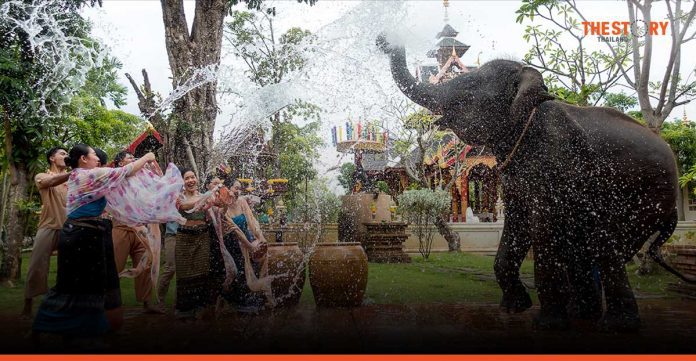The United Nations Educational, Scientific and Cultural Organization (UNESCO) has officially registered “Songkran in Thailand” (traditional Thai New Year festival) as a representative item on the Representative List of the Intangible Cultural Heritage of Humanity.
Songkran is a traditional Thai New Year celebration observed nationwide in mid-April. This custom, passed down through generations by the Thai people and diverse ethnic communities, reflects the beauty and significance of Thai cultural values such as respect for elders, generosity, and goodwill towards others, as well as the spirit of unity.
All Songkran festivities are considered sacred and encompass various cultural heritage elements. These include the Buddha image bathing ceremony, the respectful pouring of water on elders, traditional village performances, and enactments related to Songkran legends. Therefore, Songkran in Thailand is recognized as an intangible cultural heritage that represents the richness of cultural diversity, human creativity, and is essential for sustainable development.
“Songkran in Thailand” is the fourth item from Thailand to be included in the Representative List of the Intangible Cultural Heritage of Humanity by UNESCO. Prior to this, UNESCO registered “Khon” (masked dance drama in Thailand) in 2018, “Nuad Thai” (Traditional Thai Massage) in 2019, and “Nora” (Dance Drama in Southern Thailand) in 2021.
During this meeting, a total of 45 items from various countries were proposed for registration on the Representative List of the Intangible Cultural Heritage of Humanity, in accordance with the Convention for the Safeguarding of the Intangible Cultural Heritage of 2003. This convention aims to preserve intangible cultural heritage practices and expressions that have gained community or group acceptance, foster respect, and raise awareness at both local and global levels. It also promotes international cooperation in safeguarding cultural heritage, which can manifest in various forms of oral expressions, performing arts, social practices, rituals, festive events, and craftsmanship.





